Breathing Causing Shoulder Blade Pain
First and foremost, our shoulder blade is the bone at the upper part of our back, behind our shoulders. Sometimes, due to injury, infections, nerve damage or obstruction, or some other causes, it may cause us pain. We might experience pain while moving the injured shoulder or, perhaps while breathing. The latter case is considered to be quite a serious one. Thus, you need to recognize the correct symptoms and react timely in case of experiencing this condition.
Even though, this might sound a bit strange and illogical, many people who suffered from shoulder blade pain, experienced worsening of the situation upon breathing deeply, laughing or performing some other functions related to advance lung activity. Therefore, these two are connected in a way. Often, people who are suffering from this unusual combination of problems suffer from sleep deficiency as well. This is due to the fact that we cannot control our breathing over night. Thus, the pain deprives one of his or her sufficient sleep. This reflects upon their daily lives and their overall well-being.

People who suffer from this ache, often try to breathe softly and carefully, in order to avoid the increase of pain affecting their shoulder blade. This causes a lot of mental stress and reflects upon one's life too.
Neuralgic amyotrophy (Parsonage-Turner syndrome) is an underrecognized cause of diaphragmatic paralysis. This is thought to be a unifocal or multifocal peripheral nerve inflammatory condition. Neuralgic amyotrophy classically involves the long thoracic nerve or one or more roots of the brachial plexus. Typically, the condition presents with acute shoulder and arm pain followed within 1 day to 2 weeks or more by weakness and loss of muscle function in the area of innervation.
- Orthopnea, together with abdominal paradoxical movement during inspiration in the supine position, is highly suggestive of bilateral diaphragmatic paralysis.
- Neuralgic amyotrophy is a clinical diagnosis and should be suspected in patients with a history of acute or subacute extremity pain followed by neuromyopathy. Neuralgic amyotrophy may be recurrent in some patients.
- Phrenic neuropathy causing diaphragmatic paralysis may be seen in up to 10% of patients with neuralgic amyotrophy. Dyspnea, worsened by exertion and supine position, should prompt evaluation of diaphragmatic function.
- The degree of drop in vital capacity from a sitting to a recumbent position can distinguish unilateral from bilateral diaphragmatic paralysis. Bilateral diaphragmatic paralysis usually results in a >30% decrease in the vital capacity. The maximal inspiratory pressure in patients with bilateral diaphragm paralysis is often
- Recovery of diaphragmatic function is slow and often incomplete. Serial monitoring of forced vital capacity is recommended for assessment.
- Patients with diaphragmatic paralysis should be evaluated for hypoventilation and, if present, considered for noninvasive positive pressure ventilation.
Reasons Behind This Peculiar Pain
Pain in shoulder blades, triggered by breathing, is often connected with some underlying lung problems, like infections etc. Thus, smokers are far more susceptible to getting in this situation than other people. Also, those who suffer from lung collapse tend to experience this discomfort as well.
An additional issue, causing this painful complication is a pinched nerve in the neck. Taking into consideration that our neck consists of several bones, some of them may get dislocated, applying pressure onto the surrounding nerves. This results in pain and discomfort in the neck, as well as in the shoulders. Of course, breathing only makes things worse.
What Can Be Done?
Before taking any steps regarding solving this problem, it first needs to be properly diagnosed. For pinched nerves in the neck, MRI scans are used, while lung problems are diagnosed by CT scans. Upon noticing problems, proper therapy is recommended. However, if the scans show no signs of internal problems, the pain may be caused by improper posture, sitting or standing incorrectly for a longer period of time or some other problems, including some diseases, infections etc.



-Causes,-Symptoms,-Diagnosis,-Treatment_f_280x120.jpg)
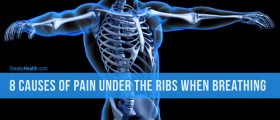

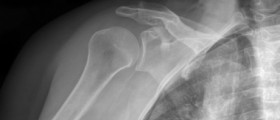


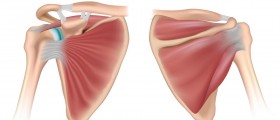
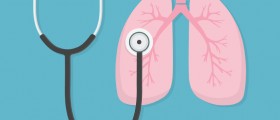
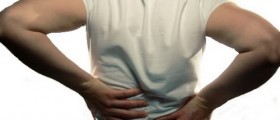


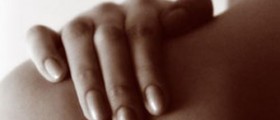


Your thoughts on this
Loading...